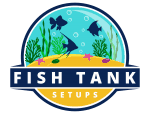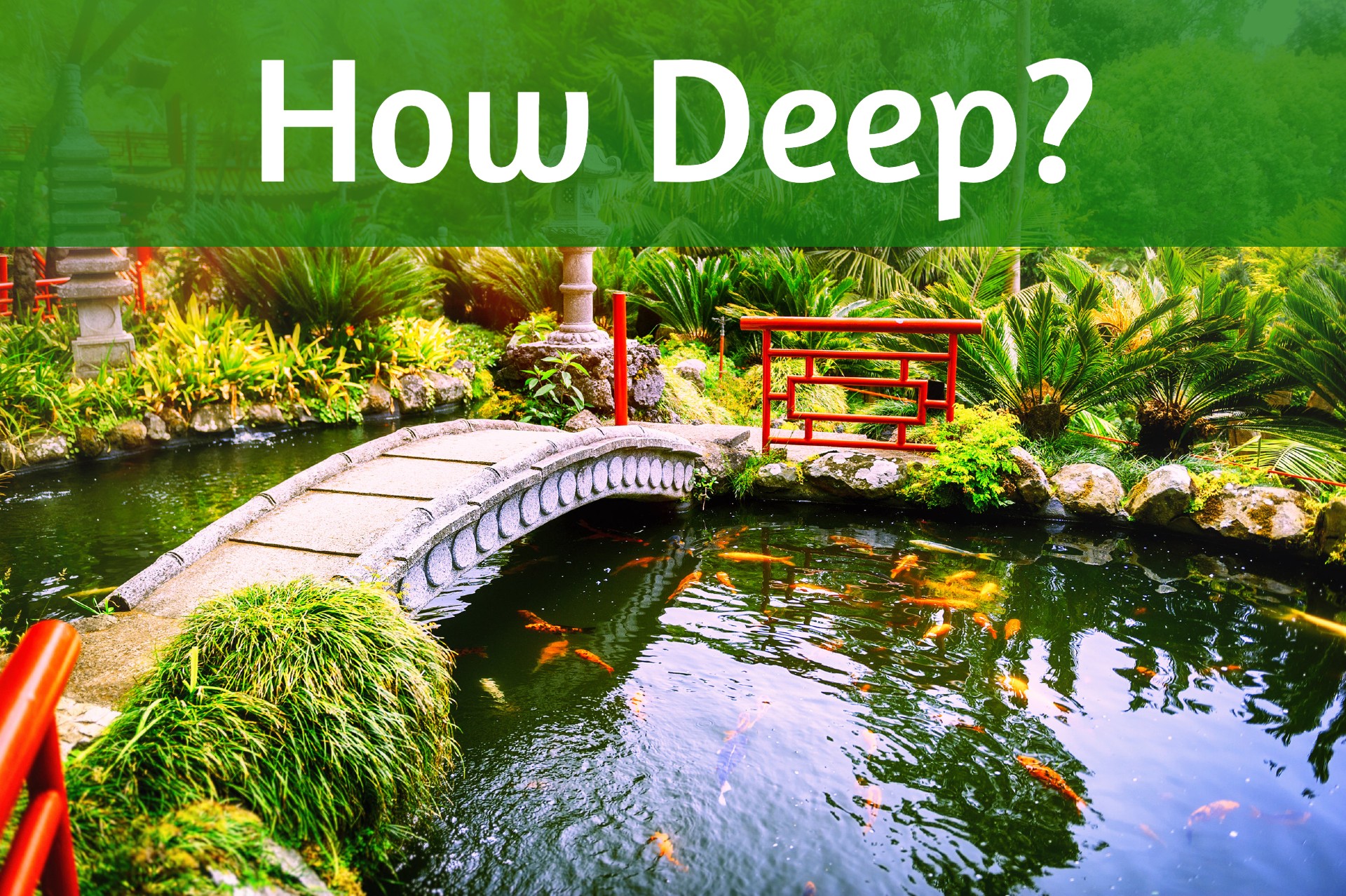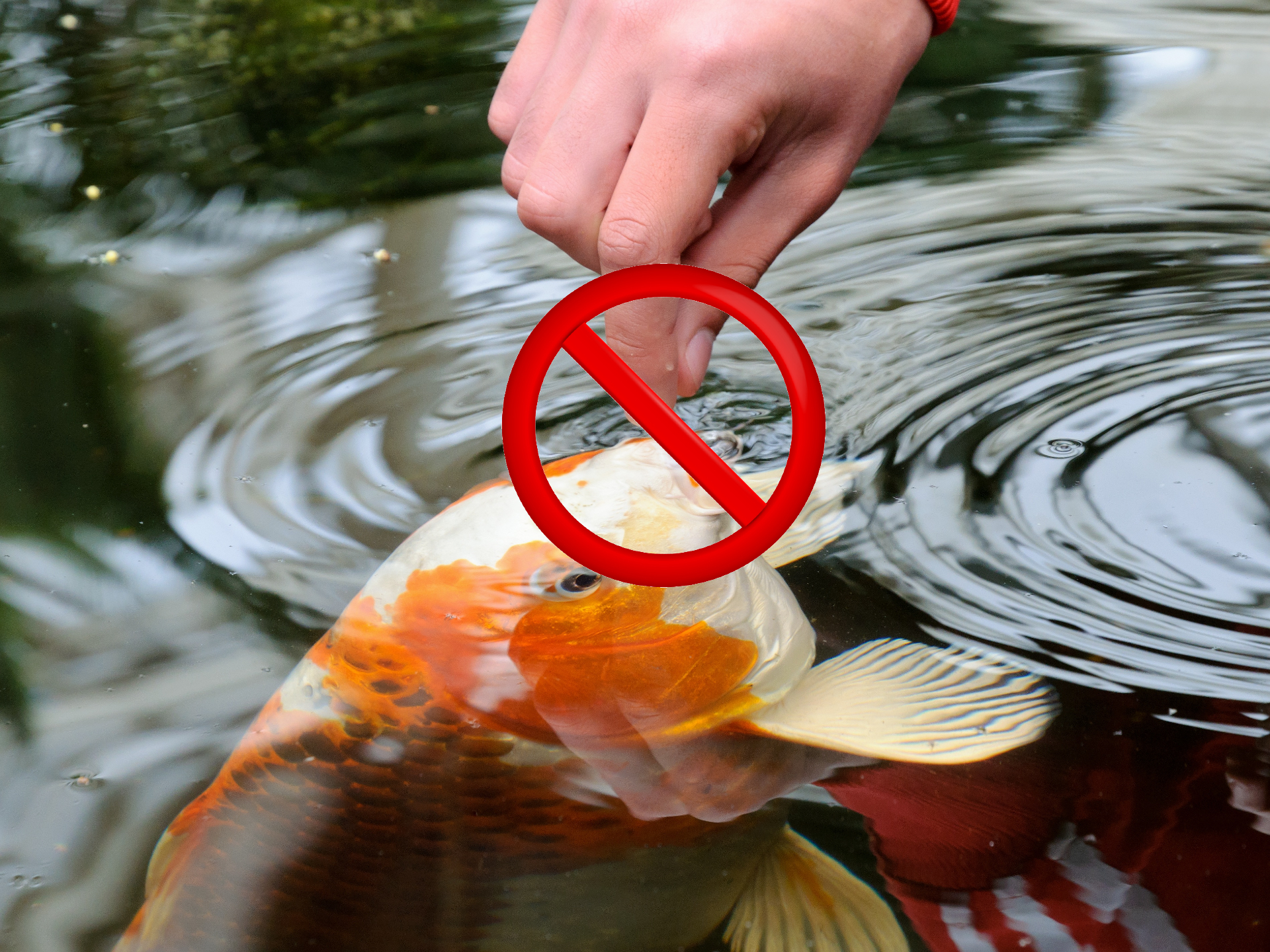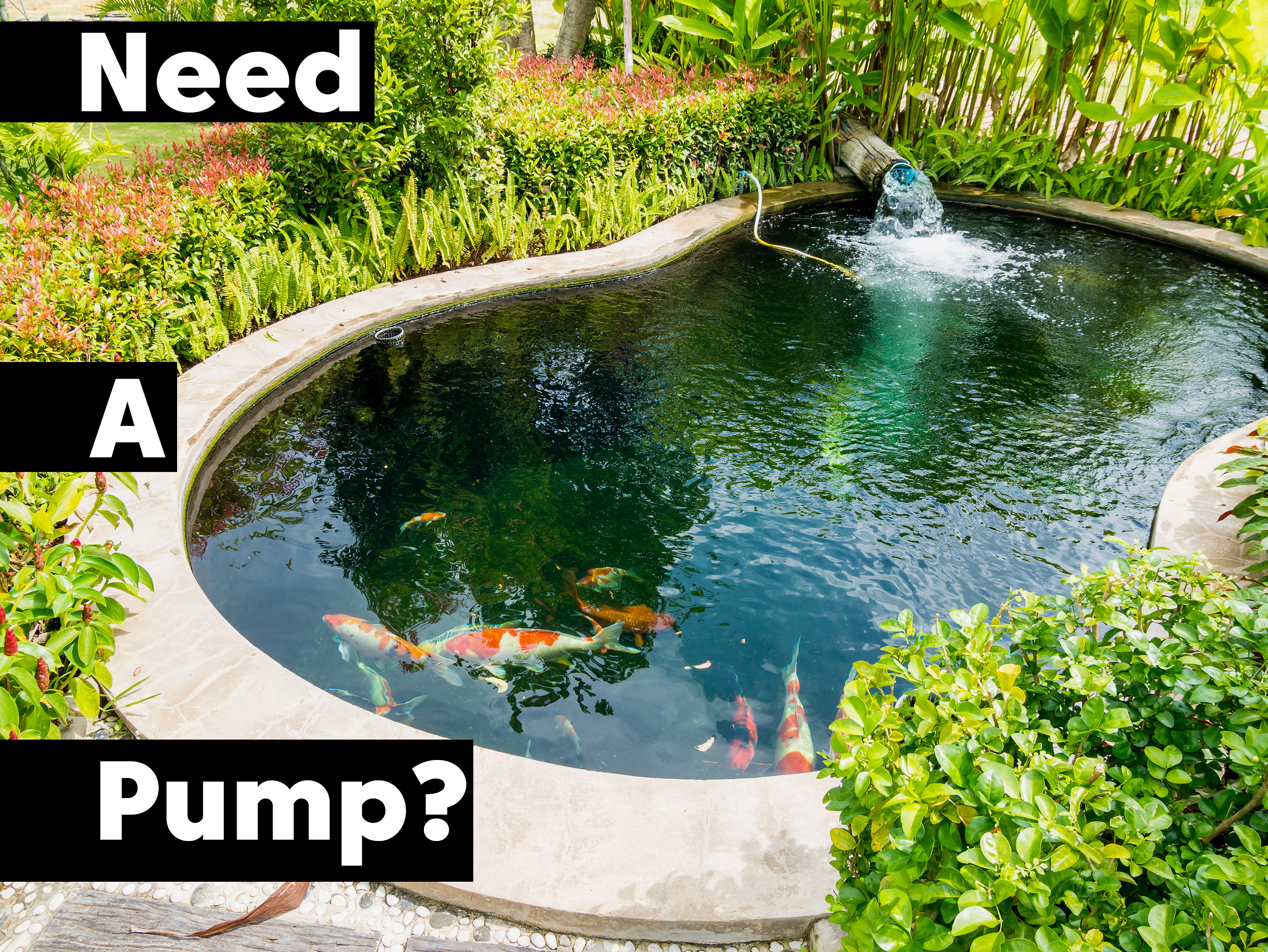Adding a pond to your garden or yard is the perfect way to incorporate a bit of naturalist beauty into your outdoor living space. With tons of different styles, options, and enhancements, fish ponds are one of the most customizable, personalized, and versatile ways to bring a bit of life to your home. On the maintenance end of things, there are countless routes to choose from based on your own preferences and fish types. One of the most important additions to any fish pond is a filter. In order to find the best pond filter, you must look at the pros and cons of what is available, as well as what you are hoping to accomplish for your personal pond.
By wading through the current market, we have discovered some of the very best fish pond filters available at several different price points and skill levels. From beginner fish keepers looking to dip their toes into the world of aquatic pet ownership to experienced caregivers with long-established ponds looking for a bit of an upgrade, we have found something for everyone. Let’s discuss the ins and outs of pond filters and figure out what works best for you and your finned friends!
Types of Filtration
A quick look at any retailer will tell you that the market for pond filters is supersaturated. There are tons and tons of different options out there all claiming to be the best of the best and all with their own unique merits. At first, shopping can be a bit overwhelming for those looking to make the leap into pond care but with a bit of understanding and research, it is quite easy to figure out what exactly you need.
To keep things simple, let’s break filtration down into three different types: biological, mechanical, and chemical. Biological filtration is the filtering done by the bacteria and microorganisms living in your pond. Bacteria, as an individual word, has a bit of a bad reputation. You hear there are bacteria growing in your pond or tank and you immediately wonder what you should do to get rid of it. We are taught that bacteria make us sick but, in reality, much of it is actually quite good and necessary, especially when discussing ponds.

The bacteria living in your pond keep it healthy and work as a bio-filter, taking out waste products and leaving the water cleaner. A normal tank filter will not play as much of a direct role in this process but it is important to keep bacterial filtration in mind when beginning your pond, as it is vital and still ties into proper filtration as a whole since it consists of the nitrogen cycle of your pond. It is especially important to be mindful of this cycle if you have a lined pond, as the liner prevents access to the soil which would normally help balance out the nitrogen cycle more easily.
Chemical filtration is also vital in keeping your pond healthily balanced and your fish as happy as possible. Chemical filtration concerns the removal of pesticides, harmful and nonbeneficial chemicals, waste products, and other unwanted aspects of pond ownership that cannot be plucked out by a mechanical filter (more on that in a minute). A good filter will aid in this chemical filtration and help keep everything level and safe for your fish and aquatic plants.
Lastly, there is mechanical filtration, which is what you think of when you imagine a tank or pond filter. Mechanical filtration removes sediment, debris, and other larger physical pieces of unwanted tank additives from the water, keeping it clear and clean. Though this is important, a good filter will help maintain the bacterial and chemical filtration of your pond balanced, as well. With this bit of knowledge under our belts, let’s take a look at the specific specs and facts to consider when choosing a pond filter. In a well-balanced aquatic situation, all three of these filtration types will work together to create a safe, stable controlled ecosystem.
How Powerful Does My Filter Need to Be?
The biggest question to ask yourself when beginning to look at filters is a simple one: how big is my pond? Most commercial companies that install ponds will know the amount of water your specific one can hold but sometimes it is left to the owner to discover this number, especially in do-it-yourself versions of pond crafting. To figure this out, work out the volume of your pond using this easy formula: length of your pond X width of your pond X depth of your pond. So, for example, let’s say your pond is two meters in length, one and a half meters in width, and half a meter deep. You simply multiply those numbers by each other and get a total volume of one and a half cubic meters. This means that your pond holds one thousand and five hundred liters of water. From there, convert the number of liters to gallons or other measurement styles as needed to match up with the various market packaging and make your decision from there.
From there, you must consider how many and what types of aquatic animals you are going to introduce into your pond. If you are going to keep fish like goldfish or other smaller creatures, you should double the volume of your pond’s water content to estimate the capacity you should shoot for in a filter at the minimum. For larger fish like koi, quadruple the amount. This is done to help counteract the waste produced by the fish. So, using the previous one thousand and five hundred liter pond above, we would need a filter that can work with three thousand liters for goldfish or a filter capable of handling six thousand liters for koi. Shoot for a filter that matches this number as closely as possible without going under and you should be just fine; going too far over your volume can cause the suction to be too powerful so try to stay within the safe range. Bigger is not always better.
Top 6 Best Pond Filters
1. Best Choice Products 4000L Pressure Bio Pond Filter
The Best Choice Products Biofilter is a bit on the higher price end of the mid-range model market but is well worth the price tag if you are looking for a top-of-the-line, surefire filter to keep your pond looking crystal clear year-round. This filter claims to be able to clean up to 2500 gallons with a normal fish load or 1500 gallons with a heavy fish load. With eight thousand hours of UV lighting included in the product, this filter works to actively reduce and prevent the reproduction rate of algae and other single-celled bacteria, keeping your water debris-free and clear. Here is the 4000L Pressure Bio Pond Filter!
Pros:
- Easy to clean due to its simplistic design
- Includes UV light to control algae growth
- Very easy installation and usage
Cons:
- Cannot be submerged into water
The smaller size of the filter makes it easy to hide and the easy to attach and clean tubing makes it perfect to attach to a wide variety of pumps. The included back-flush feature sucks out contaminants and includes an indicator to let you know when to clean your filtration system and pond, making maintenance a breeze. All in all, you cannot go wrong with this powerful little filter. Its ease of use makes it absolutely perfect for those just starting out since it is a no-fuss product that requires minimal effort and has a gentle learning curve to allow newcomers to the pond tending hobby to hone their skills without risking the safety of their setup.
2. OASE BiozSmart 5000 Pond Filter
The OASE BioSmart 5000 Pond Filter is pretty much as close as you can get to a professional quality set up at home without shelling out quite a bit of money. This incredible product features a ton of high-end attributes that will have your pond sparkling clean and debris free in no time at all! The innovative flow-through filter design provides supreme oxygenation while supporting mechanical and biological filtration processes successfully and fully. Suitable for up to five thousand gallons, this filter works well with both fish-free and fish-filled ponds. Here you can find the Oase BiozSmart 5000 Pond Filter.
Pros:
- Eco-friendly technology makes it great for those looking to be planet-friendly
- Supports natural, healthy nitrogen cycle
- Easy to maintain and replace components
Cons:
- No UV light algae control (easy enough to add on your own)
- No emergency backflow to prevent clogging; available in similar models of the same price range
The multi-level filtration process practiced by the device supports bacterial settlement, encouraging a healthy and fully regulated nitrogen cycle that, in turn, supports a wide variety of marine life. Additionally, specialized sensors inform you of when your filter needs to be changed and a small display shows the water temperature at all times, allowing you to keep an eye on the state of life in your pond on an extremely close and thorough level, giving you peace of mind that everything is going perfectly.
There are also other variations of this product that cater to smaller ponds up to 1600 gallons and larger structures going up to ten thousand gallons, too, so be sure to look into versions and specs before making your decision, though you cannot go wrong with any variant of this amazing product!
3. Jebao Bio Pressure UV-C Pond Filter
If you have a smaller pond, this filter may be your new best friend. Available in four different options, this easily customized product works well for those with just a few fish or limited space but is also powerful enough to cater to decently sized, three thousand gallon projects with ease, as well. The specialized three-step process curated by the device works to clean your water at the highest possible capacity. Here you can find the Jebao Bio Pressure UV-C Pond Filter.
Pros:
- Affordable for the level of care
- Provides a unique three-prong approach to cleaning water
- Can filter up to 3000 gallons
Cons:
- Some people have reported structural issues including leaks
First, water is pumped into the product where it interacts with a trio of foam filters that remove debris and jump-starts step two, which involves regulating the nitrogen cycle and promoting bacterial filtration by passing the water through a layer of bio-balls. Lastly, UV clarification occurs to clump together single-celled bacterial components and make them easier to remove from the water. Cleansed water is then redistributed, giving your fish and plants an optimal balance of good bacteria and clear, freshwater!
4. Pond Boss Filter Kit with Pump
If you are looking for an all-in-one product that will keep your pond looking clean without imposing a negative impact on the Earth, the pond boss Filter Kit with Pump is the way to go. This product contains everything you need to get started with a filtration setup, including the filter, pump, tubing, and nozzles. Users report successfully utilizing this pump up to two hundred gallons in volume but the seller does not explicitly state the volume limits. You will be able to find the Pond Boss Filter Kit with Pump here!
Pros:
- Easy to use
- Eco friendly
- Great for smaller setups
- Includes everything you need to get started
Cons:
- Not powerful enough for larger ponds
For smaller ponds, this product will keep things running smoothly and offers easy customization to use with fountains and other attachments at will. Additionally, it is quite easy to use and many reviewers claim maintenance is infrequently needed, with some going several weeks between cleanings. All in all, this is a well-rounded, powerful little pump that is fantastic for at-home use in smaller setups.
5. TetraPond Filtration Fountain Kit
A staple in many fish-owning homes, Tetra is a brand that has been around for decades. Sold in pretty much any pet store imaginable and through other large retailers like Walmart, Target, and PetSmart, these products are beloved for their affordability and lasting power. The TetraPond Filtration Fountain Kit is a great little workhorse filter that includes a pump and all of the odds and ends needed to get started with a pond set up. You can find the TetraPond Filtration Fountain kit here!
Pros:
- Very affordable
- Easily found in stores and online
- Includes everything you need to get started
Cons:
- Does not work for ponds over five hundred gallons
- Some reviewers report issues with fish heavy ponds
For around half of the price of other similar models, this is a great low-end alternative for testing the waters a bit in the realm of pond keeping. Three fountain attachments are included, giving you the choice between spray, froth, and bell-shaped water release preferences. All three of these offer oxygenation to the pond which is vital for helping keep your fish and plant life healthy. As an extra little perk, the pump is submersible, making it easy to hide if you are looking for a more natural aesthetic for your pond area! Also, there are three different versions to suit ponds up to five hundred gallons in volume or as low as under two hundred gallons!
6. Aquagarden Water Pump for Ponds
If you are looking for something small and discreet but still powerful, the Aquagarden Water Pump for Ponds is a surefire winner. This powerful little pump comes in three variances, including options for ponds under two hundred gallons and up to six hundred. Here you can find the Aquagarden Water Pump for Ponds!
Pros:
- Includes LED Light
- Includes sprayers and fountain heads
- Easy to use
- Tons of features and options
- Two-year warranty
Cons:
- Some users report flow trouble
Great for at-home use, this kit includes a set of fountain sprayers to choose between that offer daisy super jet spraying, daisy single jet spraying, and a water bell jet spray. The pump also has a safety auto shut down for its included LED light and a handle to help make removing it from the pond a breeze. For the price, the value of this device is well worth the investment, making it a top contender for the best home pond filtration system on the market today.

Frequently Asked Questions
1. How often should I clean my pond filter?
Though it varies from product to product, there is a general rule of thumb of sorts concerning filter cleaning. In general, you will have to clean your filter more in the warmer months and less in the colder ones. This is due to more bacterial breeding, more plant blooming, and more activity, in general, going on in and around your pond. Be sure to check the recommended change times and maintenance requirements for your specific product to get the exact timeline of your filtration maintenance all set. Be sure to clean everything regularly since debris can clog your system and lead to a lot of issues that could be detrimental to the overall health of your pond and do quite a bit of damage to your filtration system which can be rather costly to repair or replace.
2. Do I absolutely need a pond filter?
This is a bit of a loaded question in the pond-keeping community. While you technically do not need to have a filter set on your pond, it is beneficial, especially if you are going to have fish. Fish create a lot of waste and in order to keep them healthy and all of the levels of your water safe for them to inhabit, you must properly filter it. A pond full of just plants can sometimes be kept clean but will often look murky and attract insects. If you are wanting an aesthetically pleasing pond set up, a filter is a huge benefit to have on hand and can make all the difference in the world in the overall health of your plants and fish, especially if you are a first-time pond keeper who is not fully comfortable or particularly well versed in maintaining everything just yet.
3. Can a pond filter be too strong?
Yes and no. When you have a very small pond, you cannot stick a filter meant for five thousand gallons on it and expect everything to run smoothly. The suction will be too great and stress out plant life and fish nearby. The general rule of thumb is to shoot for a filtration system that matches your pond volume as closely as possible without going under. A bit over will not hurt but significantly under will leave you with stagnant water and leave you chasing after an unattainable level of clarity and aesthetic.
In Conclusion
What you are looking for in a filter will vary depending on the size of your pond. How many fish and what species will also greatly impact the amount of power needed to keep everything clean and clear. Play around with settings and do your research and you should be just fine! Good luck!
Related Topics
If you like the article above, here are some other similar articles you should check out!











